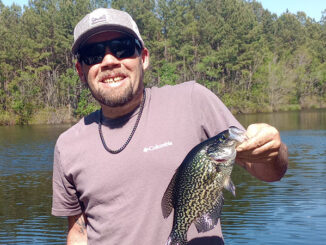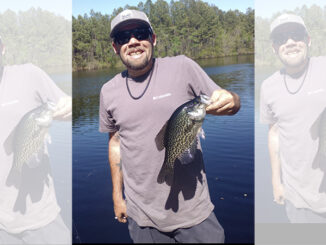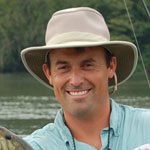
Getting toothy sharks in the boat requires some specialized equipment.
Abundant, razor-sharp teeth are a shark’s signature. Stout rods, tough gear, and heavy tackle are needed to haul sheer tackle to haul trophy sharks boat side.
The large sharks in the Bulls Bay area can range from 40 to 200 pounds, so stout, medium-heavy to heavy-action rods in the 6- to 7-foot range mated with large-capacity reels are required to overpower big sharks.
Running lines should be 30- to 50-pound braided line or 30-pound monofilament. Circle hooks from 8/0 to 10/0 are preferred since sharks typically swallow their prey. Strong wire or heavy mono leaders in the 150-pound class will help prevent cutoffs from sharks’ razor-sharp teeth.
Capt. J.R. Waits prefers heavy monofilament leaders in the 100- to 200-pound range.
“I find that I get far fewer bites with wire leader, and if the circle hook does its job, it will end up in the corner of the shark’s mouth, keeping the leader away from the teeth,” he said.
Leaders should be at least three to four feet long to protect the hook and terminal end from abrasion. Capt. Jay Nelson prefers longer leaders — six to seven feet — because many of the bigger sharks have a tendency to jump.
“Spinners and black tips will jump frequently spinning their bodies around. They will wrap the leader around their bodies on the jump quickly fraying the line and compromising the integrity of the lighter mainline when using short leaders,” he said.
Longer leaders are easy to make, but they can cause casting problems. A 10- to 15-foot section of 80-pound shock leader can be built by tying directly to the main line with a low-profile knot that will pass effortlessly through rod eyelets. A Surgeon’s knot, Albright knot or nail knot can be used effectively.
Editor’s note: This article is part of the Pulling teeth feature in the August issue of South Carolina Sportsman. Digital editions can be downloaded right to your computer or smartphone.
Be sure to subscribe to ensure you don’t miss a single information-packed issue of South Carolina Sportsman.





Be the first to comment